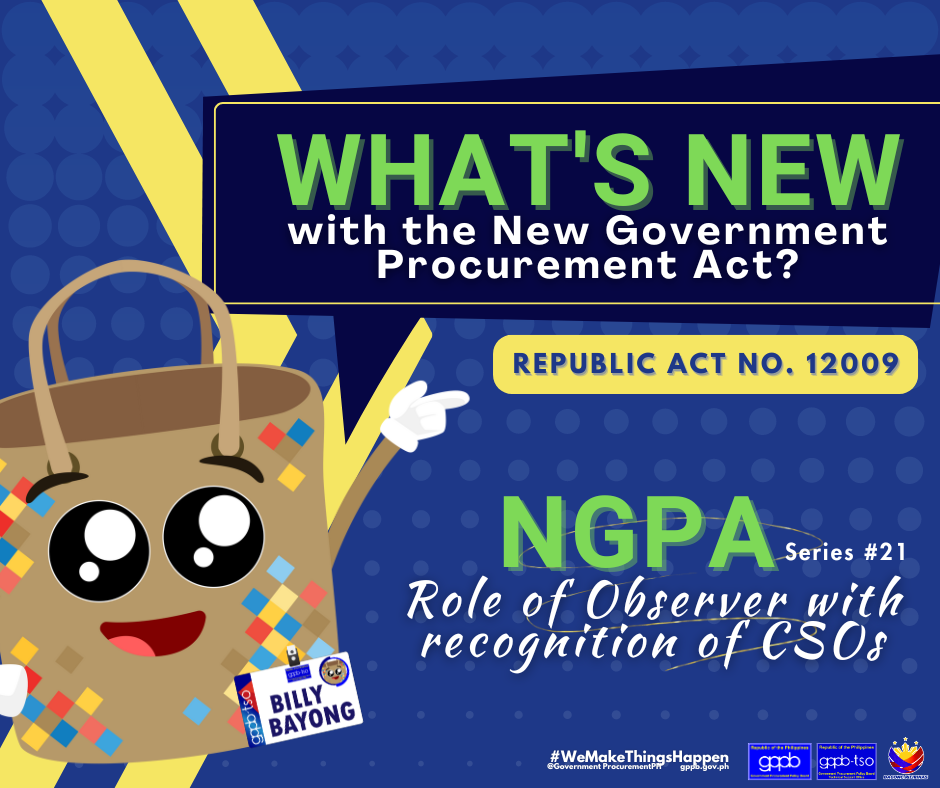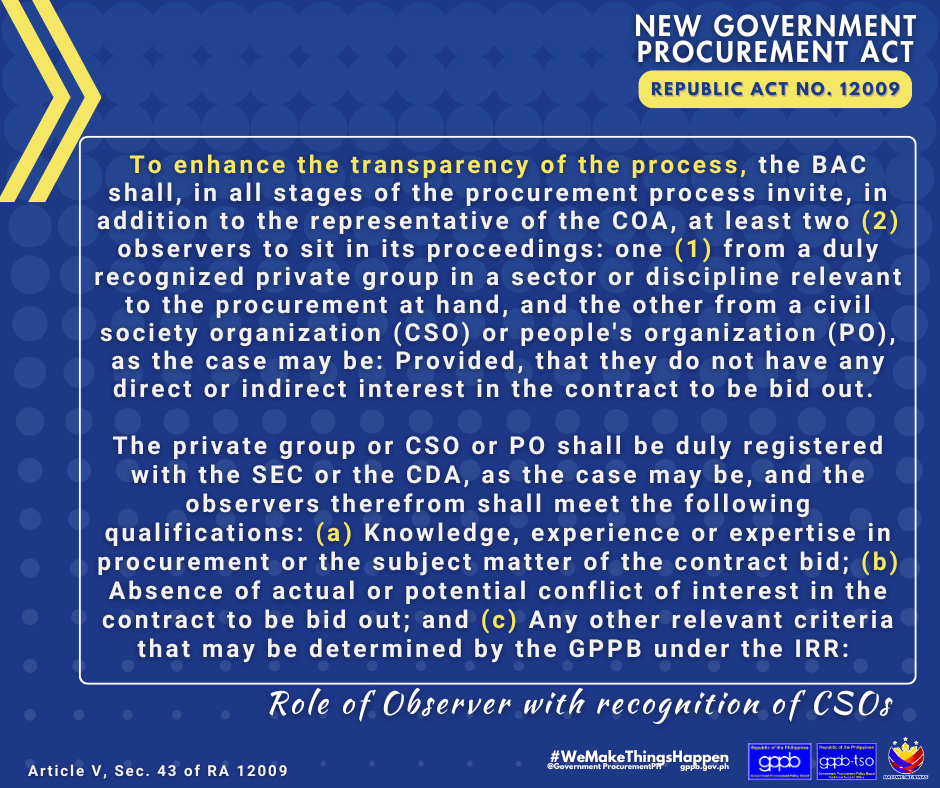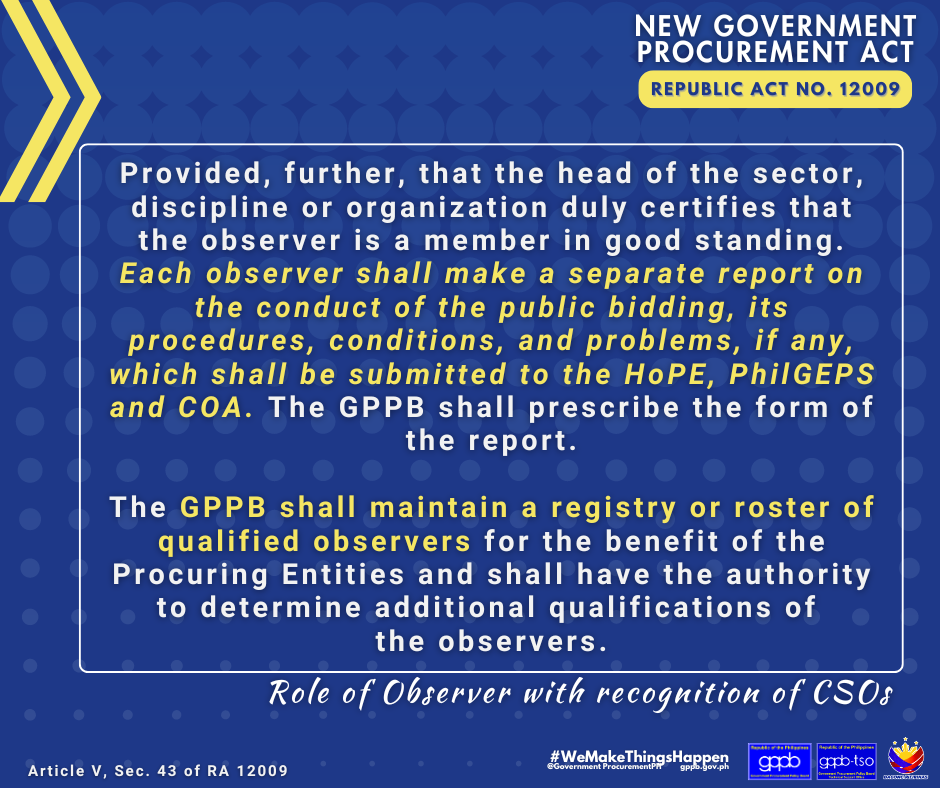


Observers play a crucial role in enhancing transparency in government procurement. By actively participating, they help ensure that public funds are used efficiently and ethically. Their involvement promotes accountability and reduces the risk of corruption through independent oversight and monitoring.
📜 Background
The engagement of observers was first institutionalized under the Government Procurement Reform Act (GPRA) or Republic Act No. 9184 and its 2016 revised Implementing Rules and Regulations. Under the GPRA, the Bids and Awards Committee (BAC) is mandated to invite the Commission on Audit (COA) and at least two (2) observers from a duly recognized private group relevant to the procurement at hand and from non-governmental organizations (NGOs).
🔄 What’s New with NGPA?
The New Government Procurement Act (NGPA), or Republic Act No. 12009, expands the scope of observers by recognizing the role of Civil Society Organizations (CSOs) to further enhance transparency and public monitoring in government procurement. While all NGOs are CSOs, not all CSOs are NGOs. CSOs include NGOs, community groups, labor unions, charitable organizations, faith-based organizations, professional associations, and foundations.
📑 Section 43 Highlights
Section 43 of the NGPA mandates the BAC to invite observers from COA and at least two (2) observers from a duly recognized private group relevant to the procurement at hand and from CSOs or people’s organizations. Invited observers must:
• Have no direct or indirect interest in the contract to be bid out.
• Be duly registered with the Securities and Exchange Commission and Cooperative Development Authority.
• Meet pre-identified qualifications similar to those under GPRA, and additional qualifications as determined by the Government Procurement Policy Board (GPPB).
• Be members in good standing, as certified by the head of their sector, discipline, or organization.
📋 Observer Reports
Observers are required to submit a report, in the format prescribed by the GPPB, detailing their observations on the conduct of the public bidding, procedures, or issues encountered. These reports are submitted to the Head of the Procuring Entity (PE), Philippine Government Electronic Procurement System (PhilGEPS), and COA.
🌐 Procurement Observer’s Portal
On 12 August 2024, the GPPB and its Technical Support Office officially launched the Procurement Observer’s Portal (POP). Developed with the assistance of the World Bank, POP is an online platform where observers from CSOs, private groups, and COA can register, access procurement information, and submit reports to the GPPB-TSO. This initiative provides PEs with an easier way to invite potential observers through a comprehensive directory, marking a significant step towards strengthening transparency, enhancing accountability, and encouraging active participation in the government procurement process.
The engagement of CSOs helps build a more transparent, fair, and competitive procurement system, benefiting both the government and the public. Their active participation ensures that procurement processes are not only legally compliant but also aligned with the principles of good governance and social justice.
To access and register to the POP, just click https://observersportal.gppb.gog.ph/ or scan QR code.
🔍 Follow us for more updates on the NGPA!
#NGPA #GPPBeInformed #WeMakeThingsHappen


